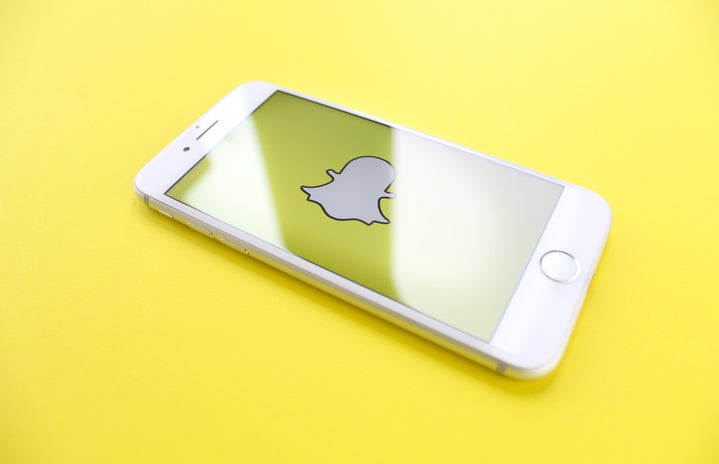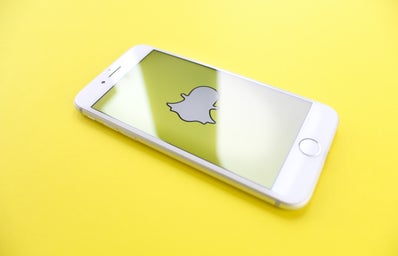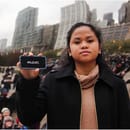I put “social media cleanse” in quotations because it wasn’t a complete cleanse. Due to being involved with certain organizations on my campus and the issue with keeping in touch with family, I chose to keep my Facebook account to stay up-to-date in certain group chats, group pages, events, etc. My most used applications prior to this cleanse were Twitter, Snapchat, and Instagram. I deleted not only the applications from my phone, but I also deleted my accounts so I would not have to deal with the temptation of accessing them on my laptop. My only exception was refraining to delete my Snapchat account because I didn’t want to lose my memories on the app.
So why the cleanse?
To be completely candid, I was really depressed. I mean, I still am. Deleting some social media accounts didn’t cure me from my mental illness and I’m not here to tell you that it is because I have no credentials to say what is and isn’t a cure. I had realized that my social media usage was not only not helping me get better but it was actually making me worse. I would see people’s posts and experience extreme FOMO and this FOMO would hit me with a lot of anxiety. Questions would overwhelm my head like “Why am I not there?”, “Why wasn’t I invited?” and “Is this post about me?”
Apart from feeling left out or not included, I also began to feel the negative effects of having an unhealthy attachment to my phone. Prior to deleting the apps, I counted how many times I would check my phone for Instagram, Snapchat or Twitter and I grossed myself out on how many times I went on my phone, even in situations where I was with other people. And in instances where I would be alone in my room and just passing time, I discovered myself one day being on my phone the entire day and it kept me from being productive or going outside. It made me really look at my life and ask, “What the f*ck are you doing?”
What did you discover?
I feel more focused.
My headspace feels so much clearer from being off of the main social media accounts that I usually consumed. Social media addiction is real because I was feeling some major withdrawals. The first night was the worst because right after I deleted my apps, I immediately regretted it. I started second-guessing my decision, thinking of all the things that I would miss from my friends posting or worrying that my friends would Snapchat me.
It made me face my problems head-on, instead of venting on social media.
Similar to many other people, I do have a finsta or a “fake Instagram,” and in the past, I have often used it as a place to showcase my frustrations. Anytime something or someone bothered me, I would go on my phone and make a post about it online. This inhibited me from actually confronting my initial problem or from finding a way to solve it, which, unsurprisingly, just made me feel worse. When I first started getting used to life without a finsta account, I quickly realized how many times I wanted to reach for my phone and type away my problems instead of thinking them through. Giving thought to the things that hurt you never feels good, so it was difficult facing my frustrations at first. Since my way of coping was through social media, I realized I needed to find a different outlet to vent out my frustrations, and it made me really utilize the people around me. Instead of trying to find solace in my phone, I made the effort to seek people out for support and, again unsurprisingly, I found it more helpful than just being alone. I think a big reason why the idea of a finsta is so popular within our generation is that we feel like we are burdening our friends with our problems, and instead of seeking them out, we shout out into the void that is our private accounts so no one feels the individual responsibility to “take care of us.” But it’s within our nature to work together and find help within each other. Social media prevents us from genuinely reaching out and that needs to change.
It can be isolating when you realize how deep the addiction is to our phones.
I don’t know how many times within a day I found myself with a group of my friends and they were all on their phones. Granted, some of it was because they needed to check their emails and reply to messages, but many I found to just be mindlessly scrolling or tapping through posts, stories, and meaningless snaps. It was disheartening and it (lowkey) made me despise the culture of our generation. I often wondered what socializing would be like if we couldn’t use our phones as a crutch for boredom or discomfort. Would we stay isolated within our own bubbles still? Or would we be able to find each other in the boredom and the discomfort of silence?
Giving up memes was the most difficult part because if there’s anything that the internet is good for, it’s the ability to share memes with your friends.
My friends would find me and say “Hey did you see what I DM’d you?”, and I would have to sadly say no. It sounds very trivial out of everything else I’ve said before, and it is. But this was something I didn’t even think would be a problem.
Ignorance is bliss.
FOMO no mo’! I was surprised how at ease at was with not knowing what other people were up to. As much as I missed knowing what my friends from further places were doing, if I truly wanted to know, I would call or text, which made me more intentional with my relationships.
It showed me that being present is more important than anything else.
There’s beauty in the present moment, even if you think there’s nothing interesting going on. I remember I had dinner in the park with one of my friends. We both had our phones off to the side. There were many moments that we shared that were only filled with silence, and it was beautiful. Instead of filling it with the white noise of social media, we filled it with nature and the presence of each other. Through this entire experience, I became more aware of the people around me, especially the people who aren’t as attached to their phones. I felt more in tune with what was around me than what was being said online, and because of that, I felt like a lot of my anxiety was relieved. I only had to worry about what was in front of me, and I found that to be very liberating.
I highly encourage anyone and everyone to do their own version of a “social media cleanse,” whatever that means to you. Get in touch with nature, get in touch with each other, and most importantly, get in touch with yourself. Because as much as I did learn about other people in this experience, the person I felt I was really getting to know more fully was myself.



